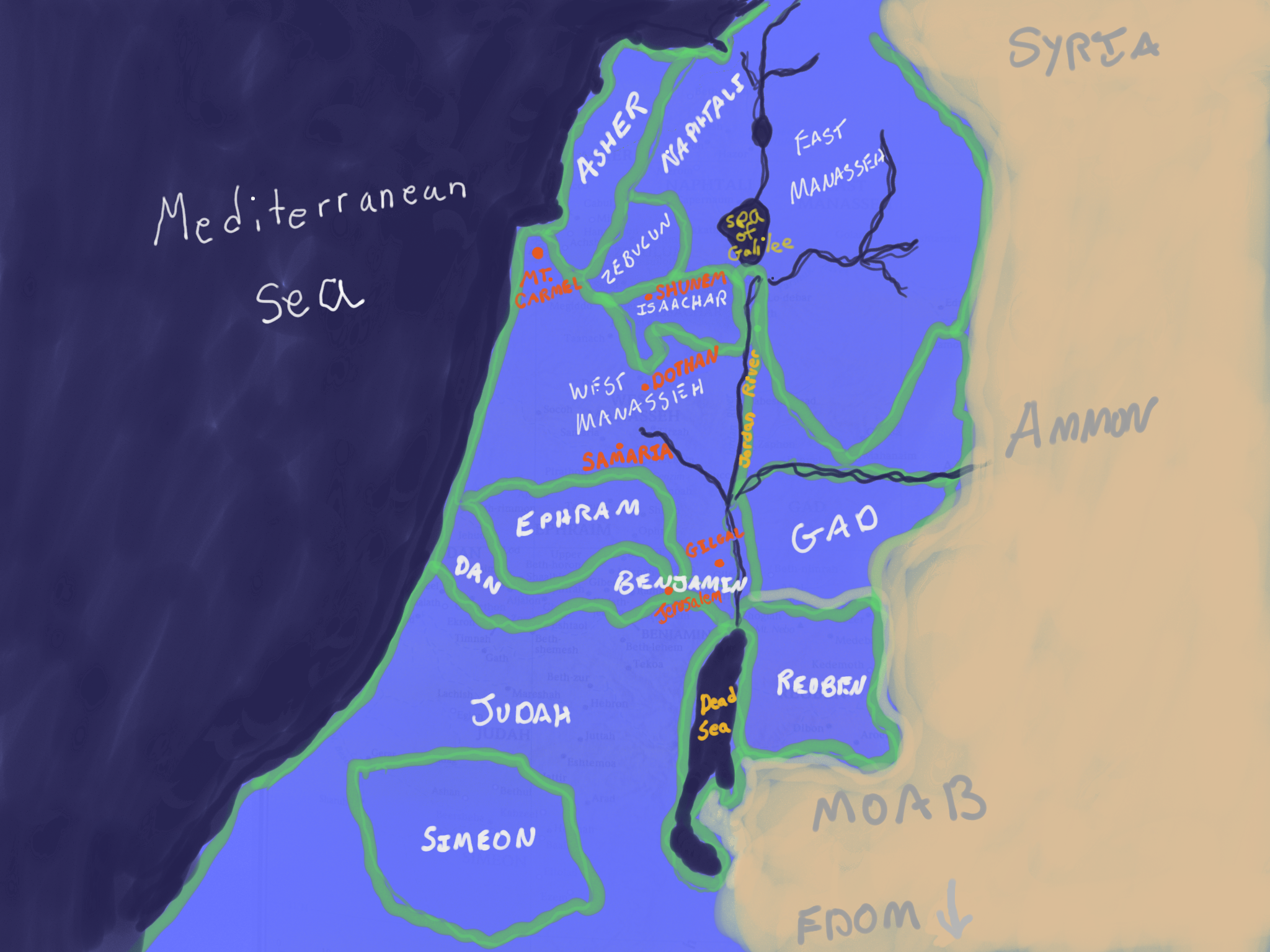#81. A Notable Woman from a Notable Town

Now it happened one day that Elisha went to Shunem, where there was a notable woman, and she persuaded him to eat some food. So it was, as often as he passed by, he would turn in there to eat some food.
II Kings 4:8 NKJV
What makes a person great in the annals of history? There is nothing about the names of Alexander the Great, Julius Caesar, Augustine of Hippo, John Calvin, or George Washington that marks their bearers as worthy of renown. Rather, we recognize these names because of the notable acts that these men did in history. If it weren’t for their deeds, we would not recognize their names. Because of their deeds, in some cases we do not even need their names to remember them. Consider the widow of Zarephath; the one leper in ten who returned to the Lord with thanksgiving; the Samaritan woman; and the centurion whose servant was healed.
Consider also the widow at Nain. The day after Jesus healed the centurion’s servant in Luke 7, He went with His disciples and a large crowd to a city called Nain. As they approached the city, a large crowd came out towards them carrying a dead man, the only son of his mother, who was also a widow. As these two crowds came together, Jesus told the mother not to weep and then commanded the young man to arise. In the presence of these two large groups, the young man sat up and was returned to his mother. The response of all who saw was to glorify God and say, “A great prophet has risen up among us”; and “God has visited His people.”
Nearly everywhere Jesus went performing wonderful works He was praised as a great prophet, but Nain was particularly meaningful. The city of Nain was just a short walk from another town well known in Old Testament history as the city of Shunem, where the Lord through his prophet Elisha had raised a young boy from the dead. The city of Shunem is referenced just a few times as a marker in the Old Testament,* but it takes prominence in II Kings 4 because Elisha regularly passed through it and there he met a notable woman known to history only as the Shunammite woman.
The Shunammite woman is introduced to us as a “notable” woman.** The Hebrew word gives the sense of being greatly distinguished among others. While it seems she had considerable means, servants, and land, the extent of her wealth is not known from this passage. The Scripture’s focus is on her deeds. She watched out for the Lord’s prophet and provided food for him on his journeys. Proverbs 31 speaks of a virtuous woman in this way: “She extends her hand to the poor, yes, she reaches out her hands to the needy…strength and honor are her clothing; she shall rejoice in time to come. She opens her mouth with wisdom, and on her tongue is the law of kindness.”
A virtuous woman is difficult to find. The husband of II Kings 4, however, certainly found her. She was notable for her deeds and is remembered for the way in which she cared for the prophet Elisha. He had been used of God to care for a widow and her sons, and when he went to Shunem a woman and her husband cared for him.
It seems today everyone lives for the notoriety of their own name. How many followers does he have? How many likes did she receive? The spread of your name means little before God. Notable in God’s eyes is the one who loves the Lord his God with all his heart, soul, strength, and mind, and his neighbor as himself. Are you a notable man or woman today because you fear and serve the Lord? Do away with the world’s foolishness: There is no greater legacy or service than this: “To do justly, to love mercy, and to walk humbly with your God” (Micah 6:8b) or put another way, to “Fear God and keep His commandments, for this is man’s all” (Ecclesiastes 12:9).
.
.
*See Joshua 19:18 and I Samuel 28:4.
** The NKJV translates this Hebrew word as “notable,” the KJV as “great,” and the ESV as “wealthy.” The text tends to have its primary focus on a comparison of her actions to those of others rather than on her wealth. This does not preclude her from having been a wealthy woman but she used her means for kindness to others.
Copyright ©, LikeTheGreatMountains.com, 2020



0 Comments